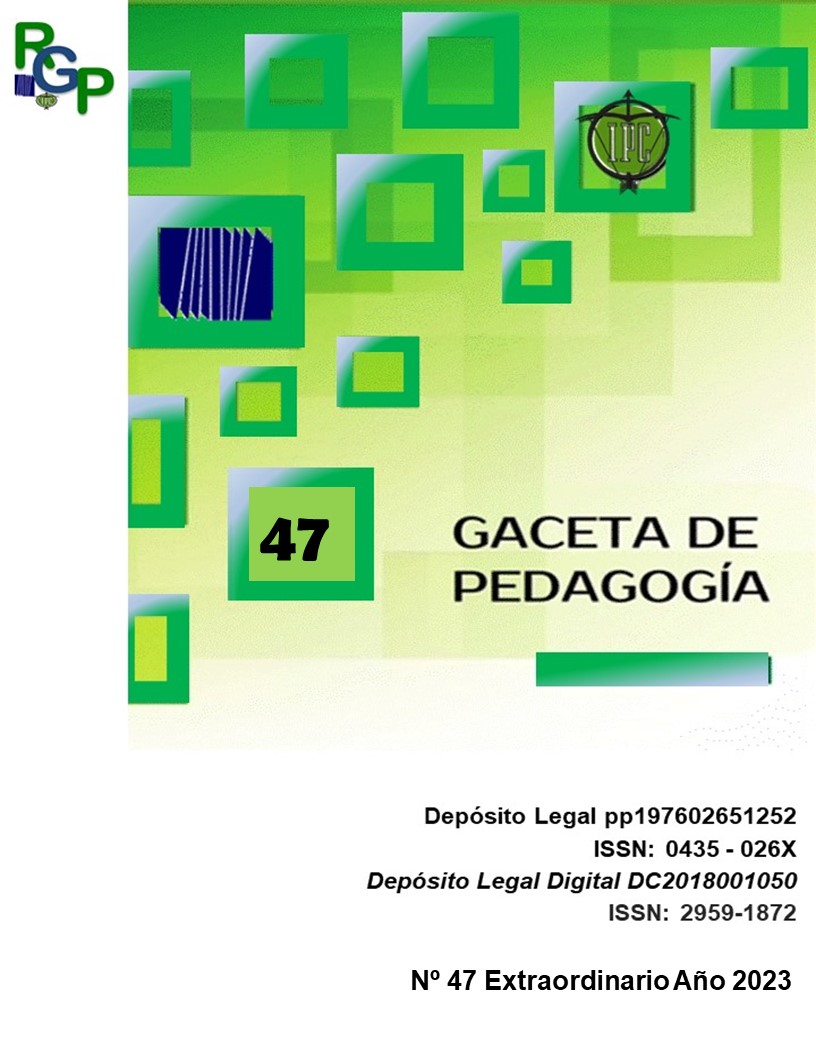Awakening motivation strengthens reading comprehension
DOI:
https://doi.org/10.56219/rgp.vi47.2346Keywords:
Motivation, Learning, Descriptors, Comprehension, ReadingAbstract
This research focused on interpreting how students are motivated to strengthen their reading comprehension. The study was guided by a qualitative approach; applying a focus group of 13 teachers from an educational institution located in Magangué-Colombia. The grounded theory method was applied, developing the constant comparison analysis, which involves collecting information, coding it and analysing it. The results obtained show that a student who is motivated by reading is characterised by attention, perseverance, interest and a positive attitude, which at the same time gives him or her peace of mind, self-confidence and the ability to be confident in the learning process. In terms of reading comprehension, the most common descriptors for students able to understand reading are associating content, identifying the elements present in the text, organising ideas and establishing cause-and-effect relationships, all of which help with learning in other academic areas.
References
Allport, G. (17 de Julio de 2018). Definicion de actitud. Pscologia Social, 50-62. https://www.psicologia-online.com/definicion-de-actitud-psicologia-social-1394.html
Bronfenbrenner, U. (2014). Sistemas de aprendizajes sociales. España.
Castro, V y Wilson, J. (2021). La motivación y su relación con el aprendizaje en la asignatura de física de Tercero en Bachillerato General Unificado. Venezuela. Revista Educare. Volumen 25 No. 2 mayo-agosto 2021
Condermain, M. (2015). La enseñanza de la lectura. Madrid. España.
Condori, E., Chumpitaz, H., Salazar, P., Torres, M. y Quispe, W. (2021) Procesos Cognitivos y Motivación Académica durante la pandemia del Covid-19. Revista arbitrada del Centro de Investigación y Estudios Gerenciales. 52. 39-50. 494, Numero Extraordinaria.https://revista.grupocieg.org/wp-content/uploads/2021/10/Ed.5239-50-Condori-Araujoet-al.pdf
Gutiérrez, B. y Salmerón, H. (2012). Estrategias de comprensión lectora: enseñanza y evaluación en educación primaria. Revista profesorado, 16(1), 183-202.
Jaimes, M. (2021). La afectividad infantil en las relaciones sociales de educación preescolar: una mirada desde la perspectiva docente. [Tesis para optar al grado de Doctora en Educación]. Instituto Pedagógico Rural “Gervasio Rubio”
Laboratorio Latinoamericano de Evaluación de la Calidad de la Educación (LLECE). (2016a). Aportes para la enseñanza de la lectura. Tercer estudio regional comparativo y explicativo. UNESCO. https://acortar.link/KsOzQh
Organización para la Cooperación y el Desarrollo Económicos. OCDE (2018). PISA In Focus 68. Autor. https://www.oecd-ilibrary.org/education/where-did-equity-in-education-improve-over-the-past-decade_33602e45
Rivas, L. (2015). Metodología para el desarrollo de la comprensión lectora. Dominio de las Ciencias, 1(1), 47-61. https://dialnet.unirioja.es/servlet/articulo?codigo=5761664
Sánchez, E. (2010). La lectura en el aula: qué se hace, qué se debe hacer y qué se puede hacer. Graó. Barcelona.
Stern, P., y Porr, C. J. (2011). Essentials of accessible grounded theory. Walnut Creek: Left Coast Press
Strauss, A., y Corbin, J. (1994). Grounded Theory methodology: An overview. En Handbook of Qualitative Research (Denzin, N., K. & Lincoln, Y., S., (Eds.), Sage Publications, London 1-18.
Vargas, L y Molano, V. (2017). Enseñanza de la comprensión lectora, referentes conceptuales y teóricos. Pensamiento y Acción, (22), 130–144.
Published
How to Cite
Issue
Section
License

This work is licensed under a Creative Commons Attribution-NonCommercial-NoDerivatives 4.0 International License.

